Today’s Best Electric Height Adjustable Standing Desk

Upgrade your workspace with high-quality, height-adjustable, electric standing desks. These desks come in a variety of sizes, catering to all your space needs – from compact models for those with minimal workspace, to larger versions that include storage drawers to help you keep your workspace organized. Some models even cater to gamers by incorporating LED lights, making long gaming sessions more comfortable and adding an extra touch of style to your setup. You’ll also find desks equipped with ergonomic features such as pull-out keyboard trays for maximum comfort during long hours of standing or sitting. Explore the selection below and find the right standing desk to elevate your productivity and help promote a healthier working posture.
Embrace Ergonomic Comfort with SMUG Adjustable Standing Desk
Today, on Amazon, we spotted the SMUG Standing Desk, and we simply couldn’t resist sharing what makes this product a superstar in the realm of adjustable desks. The magic of this piece lies in its versatility, healthy ergonomics, and user-centric design. Plus, the best part? Currently, Amazon is offering this innovative desk at a 31% discount, making it the right time to bring this blend of style and functionality into your home or office.
Buy the innovative DUMOS 55 Inch Electric Standing Desk Now
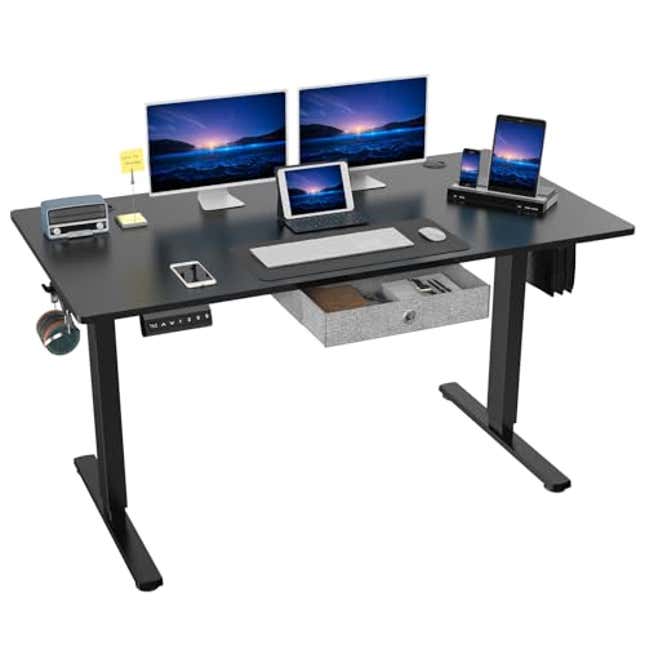
Walking into your workspace has never been so exciting. Meet the DUMOS 55 Inch Electric Standing Desk with Storage Drawers, an epitome of ergonomic workspace design. Extremely functional and modern, this height-adjustable desk is now available at a 40% discounted price on Amazon.
Elevate Your Home Office Experience
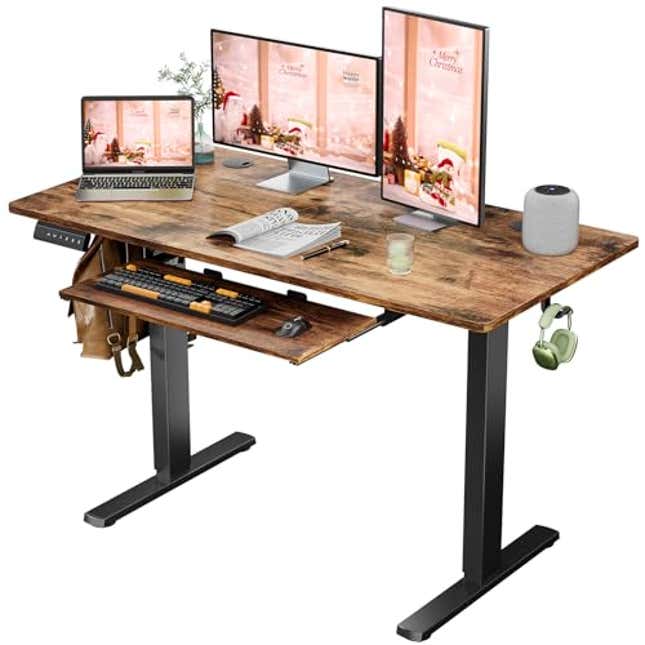
Working from home is now easier, healthier, and more productive with the Sweetcrispy Standing Desk with Pull Out Keyboard Tray-48 IN Electric Standing Desk that you can buy on Amazon today. This exceptional electric standing desk boasts an innovative, ergonomic design to enhance your work efficiency while maximizing comfort.
Upgrade Your Workspace Now
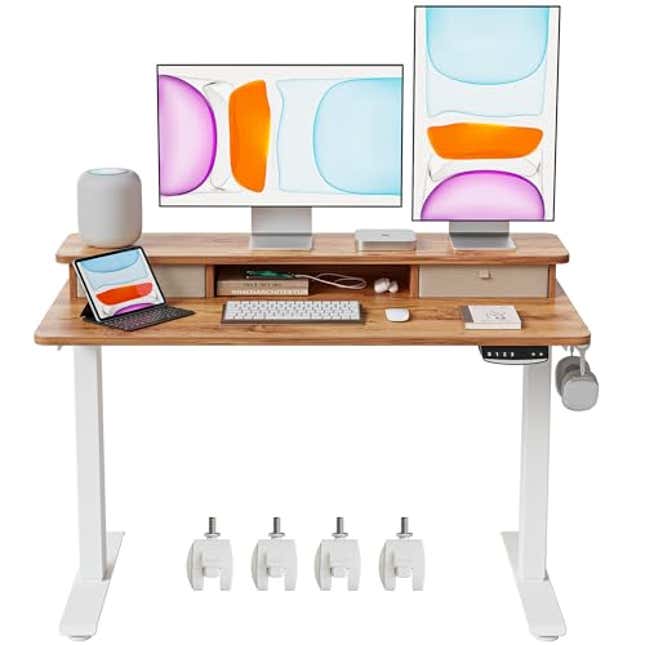
Dive in and transform your work experience with the BANTI 48×24 Inch Electric Standing Desk with Double Drawers. This sit-stand home office desk, available at a fantastic 10% discount on Amazon today, might just be the game-changer you’ve been waiting for!
Enhance Your Workspace with A FLEXISPOT Standing Desk
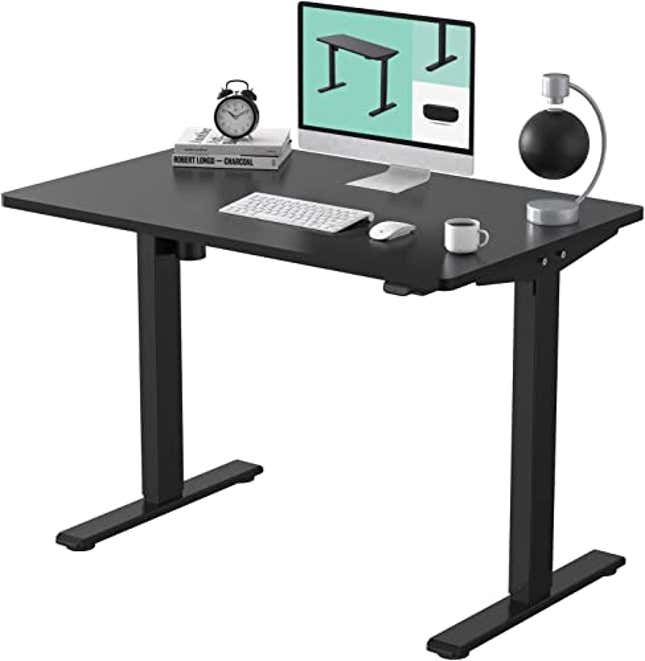
Are you in the market for a new desk? If so, you should consider the FLEXISPOT Standing Desk 48 x 30 Inches Height Adjustable Electric Sit Stand Home Office Desks currently available for purchase on Amazon with an attractive 15% discount.
Transform Your Work Experience with an Electric Standing Desk
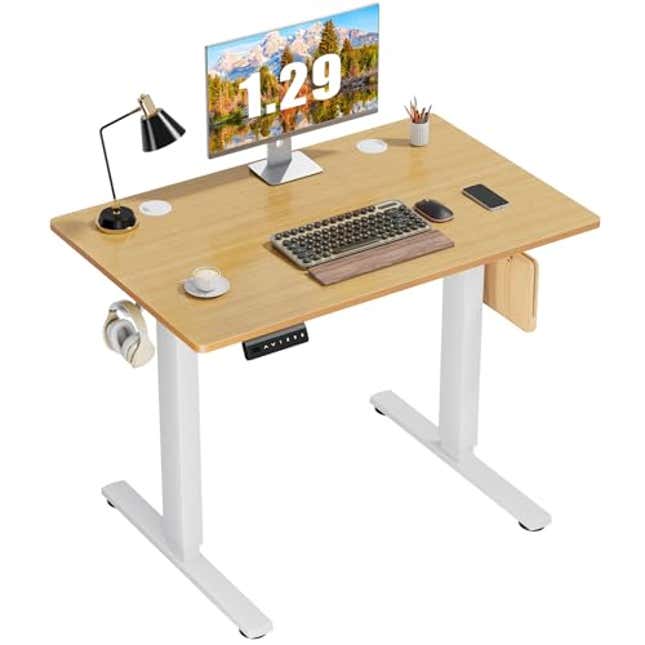
For those individuals who have always yearned for an entirely adaptable workspace that melds effortlessly with their needs, look no further. The Sweetcrispy Electric Standing Desk Adjustable Height on Amazon is precisely what you need. Molded to fit an array of requirements, this product emanates ergonomic perfection.
Revolutionize Your Workstation Now
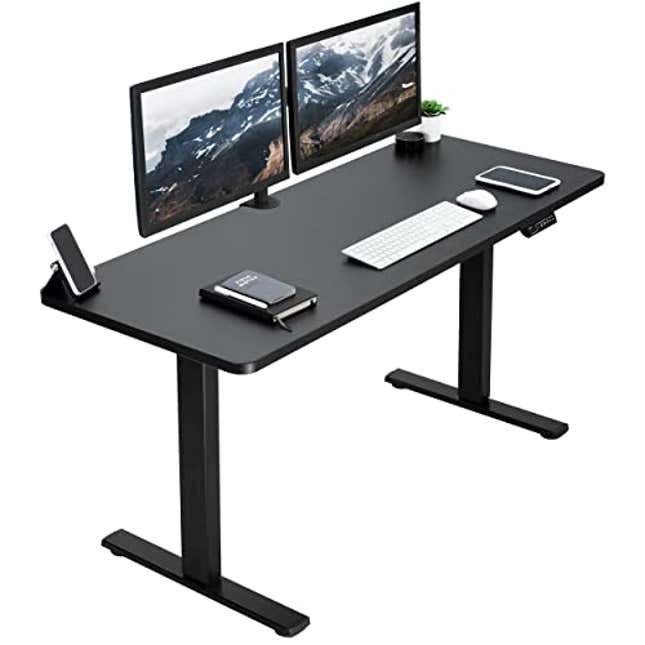
Upgrading your work-from-home setup has never been more vital. The need for comfort and functionality in our workspaces can’t be overstated. Enter the VIVO Electric Height Adjustable 60 x 24-inch Memory Stand Up Desk, a revolutionary product on Amazon that provides not just comfort, but a healthier work lifestyle.
Revolutionize Your Gaming Experience Today

The GTPLAYER Gaming Standing Desk with LED Lights is a true game-changer for both casual gamers and hardcore gaming enthusiasts. Designed to enhance your gaming experience and promote healthier working habits, this desk is a must-have for anyone with a passion for gaming or anyone who spends long hours working from home.
This article was generated by an AI engine which may produce inaccurate information.
Source link





